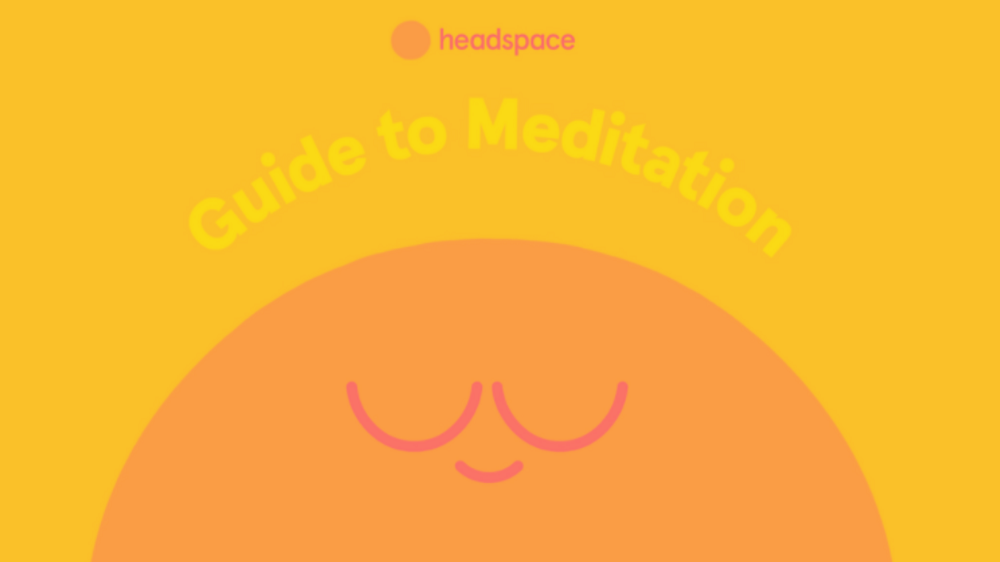
Throughout the early days of the COVID-19 pandemic, social distancing measures expedited the adoption and implementation of digital mental health apps and tools.
To meet the rising demand for psychiatric and teletherapy services amid a worsening global mental health crisis, telehealth providers took center stage and emerged as one of the fastest-growing categories throughout the pandemic.
Today, we’ll examine how some of the industry’s key players approached their respective ad strategies from the initial days of the pandemic through Spring 2021.
Headspace positions itself as the go-to wellness application for achieving a clear mind
Headspace is a startup with one goal: Make meditation accessible to everyone. The wellness app offers a comprehensive library stacked with guided meditations and mental health resources. With over 65 million downloads, Headspace has quickly become the gold standard of mental health and wellness apps. At the height of the COVID-19 pandemic, Headspace ranked as the second-largest grossing meditation app, raking in an estimated $64.5 million in the first 11 months of 2020 alone.
Headspace’s top creative from this period features a video spot running from October through December. While infection rates began to climb as a morose precursor to the biggest surge of cases the U.S. had seen yet, Headspace re-affirmed the necessity for self-care “now more than ever,” and with their help, achieving a clear mind only takes a few minutes a day.
Taking a deeper dive into Headspace’s creative strategy as a whole, the brand employed a healthy mix of Facebook and Instagram video and static ads with statistics to lend credibility to their service (“28% less sad in 10 days”). Headspace’s ad copy conveys a warm, inclusive and reassuring tone. Whatever you’re struggling with – anxiety, stress, anger, or insomnia – Headspace has exercises to nurture every version of “you.” The brand’s creative is bright and airy, featuring their company mascot, The Dot, who dons a relaxed and confident smile, almost alluding to a self-assuredness in knowing that whatever life’s challenges come his way, Headspace will be there. No doubt, the audience can feel that same energy radiating through every creative.
We see from Headspace’s monthly spending trends, spend started to increase in April 2020 before reaching a record high in January 2021 at the height of the pandemic, with over $2 million spent in this month on Facebook ads alone.
Top ad channels from this period include Facebook receiving 50% of total impressions, followed by Instagram with 38% impression share and YouTube at 4% impression share.
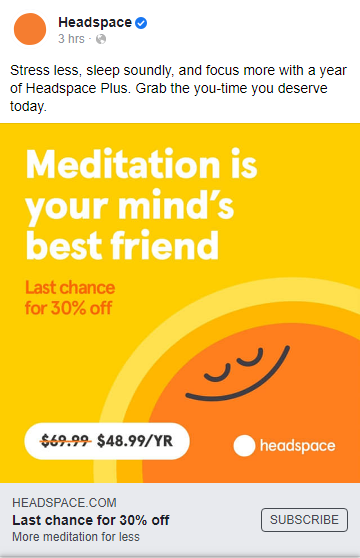
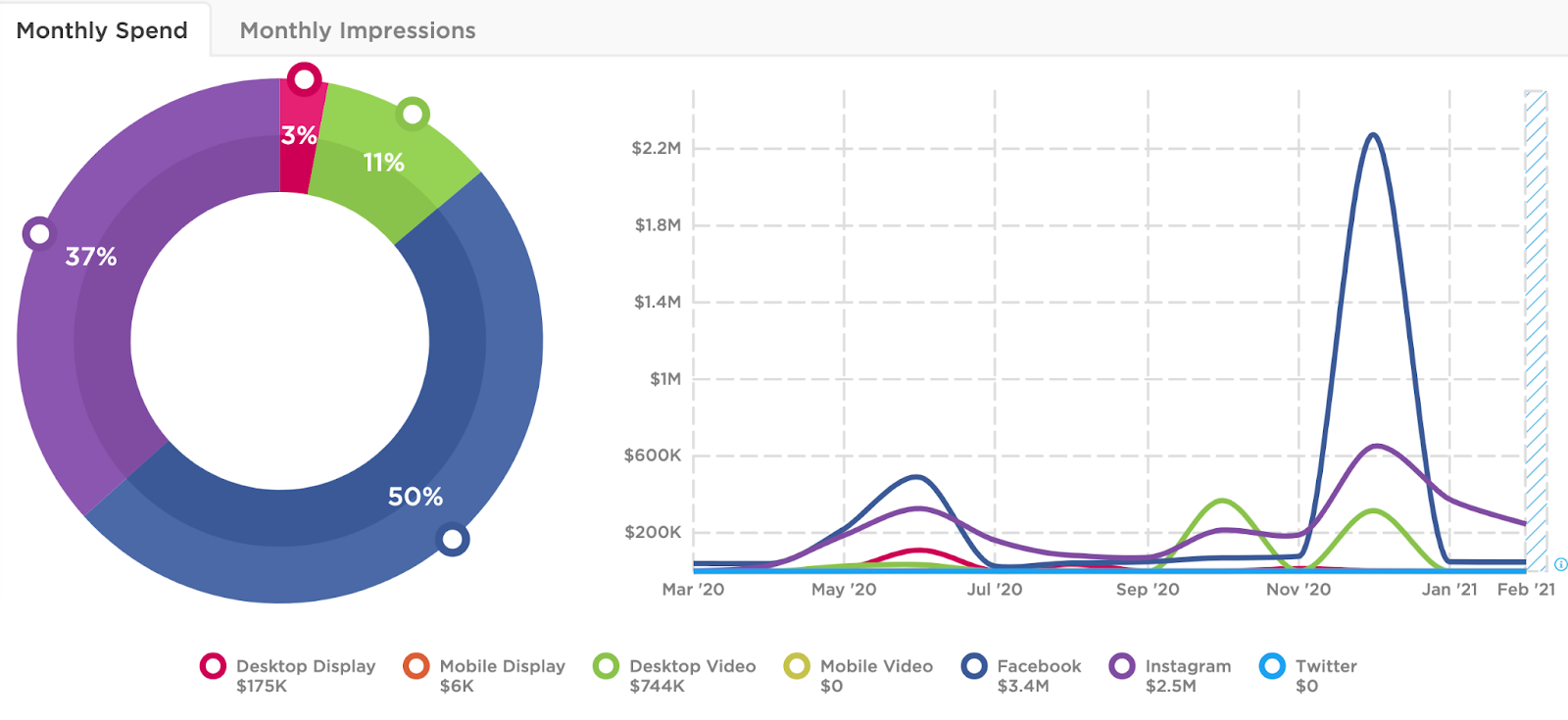
BetterHelp gives users the power to choose how they receive mental health care through a user-friendly app and experience
BetterHelp is the biggest online therapy app boasting an impressive 1 million users. The app offers counseling services for individuals, couples, and teens through private communication channels, including chat, phone, and video sessions.
According to CEO Alon Matas, the number of users choosing the platform to help specifically with stress and anxiety due to the COVID-19 pandemic has more than doubled. However, Matas declined to give exact user numbers since its parent company Teledoc hasn’t publicly disclosed those metrics. According to Sensor Tower, though, BetterHelp downloads in the U.S. grew from 50,000 in January to 80,000 in April — a staggering 60% increase in just three months. By comparison, the company grew 15% between January and April of 2019.
The brand’s top creative from this period features an illustration of a woman lying alone on her bed with copy superimposed over the ad reading “There is no shame in getting help.” Further, the ad copy leans into the application’s ease of use and accessibility, targeting people who may have been interested in seeking mental health services but faced numerous roadblocks that prevented them from doing so in the past. While there is no explicit or even implicit mention of a discount or money-back-offer, BetterHelp members have full agency over their therapy experience (in just a few clicks, the app allows you to switch therapists, schedule appointments and complete therapy homework). Overall, BetterHelp implements a diverse creative strategy with its underlying message remaining the same; no matter what you’re struggling through, BetterHelp is your light at the end of the tunnel.
Looking at monthly spending trends, BetterHelp ramped up its presence on Facebook and Instagram in April 2020 before reaching an all-time high in January 2021, with $1.6 million spent on Facebook ads and $1.2 million allocated to Instagram campaigns at the height of the pandemic’s most deadly outbreak to date.
Top channels from this period include Facebook receiving 65% of total impressions, followed by Instagram with 22% impression share and YouTube with 12% impression share.
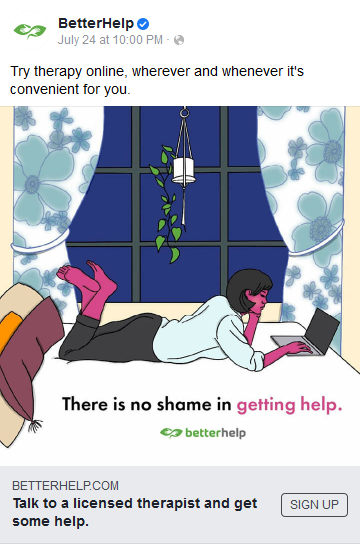
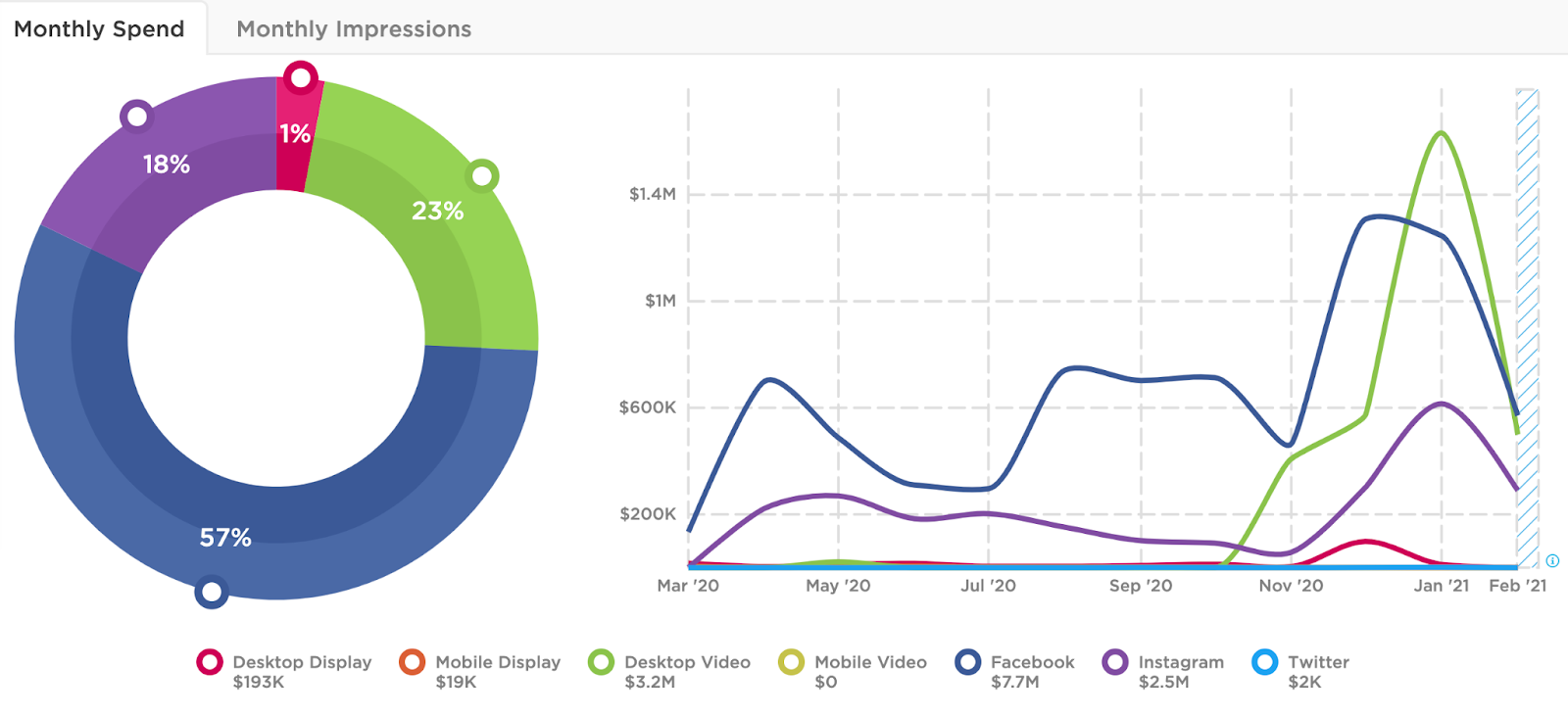
Talkspace teams up with celebrity influencers to drive their brand awareness campaigns
Talkspace offers online therapy, specialized psychiatric care and prescription management services for individuals, couples, and teens. Talkspace sees behavioral health as a lifestyle, not a one-time occurrence. Like so many other digital mental health providers, Talkspace experienced a remarkable period of growth during the COVID-19 pandemic. The online therapy app plans to go public through a merger with SPAC Hudson Executive Investment Corp. The deal values Talkspace at $1.4 billion, making it the first and only publicly traded virtual behavioral health company.
One of Talkspace’s top creative from this observed period features a celebrity endorsement from Singer, Songwriter, and Mental Health Advocate Demi Lovato, who offers a brief testimonial of what sets Talkspace apart from the competition. Talkspace announced Demi’s partnership with the company to help more people find their voice and live a better life by having more access to therapy.
Reviewing Talkspace’s overall creative strategy, the app’s approach is more cohesive and consistent when compared to BetterHelp’s. Their ad format adheres to a strict formula of a celebrity or Talkspace counselor framed next to a brief, one-sentence testimonial attesting to Talkspace’s potential to help you live a healthier and happier life. While Talkspace doesn’t allude to the COVID-19 pandemic in any of their creative, they also don’t minimize or downplay their audience’s intelligence or awareness of the current health climate. Talkspace understands the stress and mental health issues aggravated by the pandemic may be only one of many reasons why people try their service.
Talkspace’s investment in Facebook ads saw a slight uptick in April 2020 before reaching its peak in September, with over $800,000 spent in the single month period. When Facebook spend dipped for the remainder of the year, Instagram took up the helm with over $670,000 allocated to the platform in January 2021.
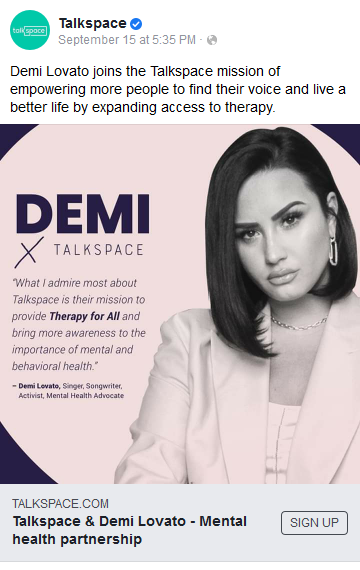
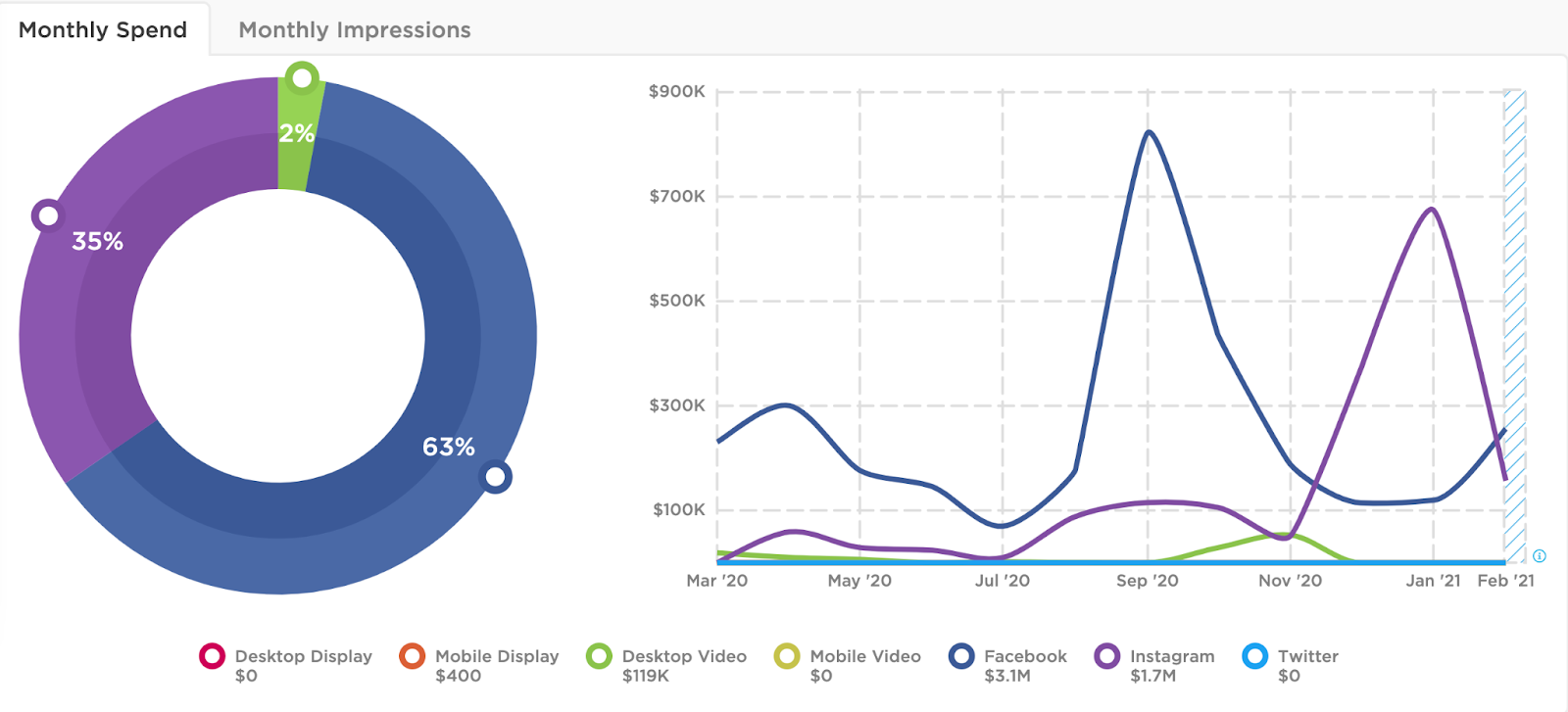
Top ad channels from this period include Facebook earning 65% of total impressions, followed by Instagram with 33% impression share and YouTube coming in at a distant third with 1% impression share.
The pandemic was an opportunity for telehealth companies and unicorns alike to provide a much-desired and needed service to the struggling masses during one of the most taxing mental health crises our world has faced yet. And while it will take some time to understand the extent of the psychological toll resulting from the pandemic, we predict behavioral health and wellness applications will continue to help people long after the pandemic recedes as a distant, unpleasant memory in the world’s collective conscious.
To learn more about the data behind this article and what Pathmatics has to offer, visit www.pathmatics.com.







Sign up to receive our stories in your inbox.
Data is changing the speed of business. Investors, Corporations, and Governments are buying new, differentiated data to gain visibility make better decisions. Don't fall behind. Let us help.
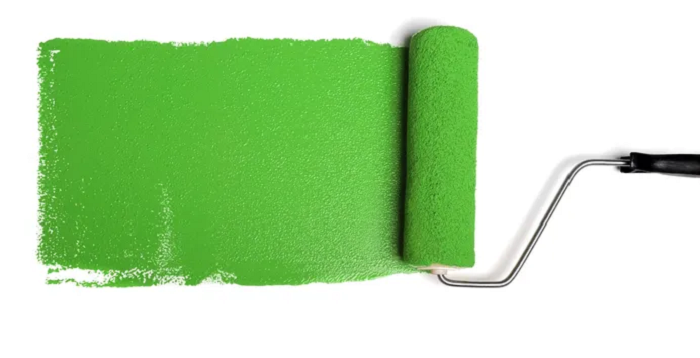
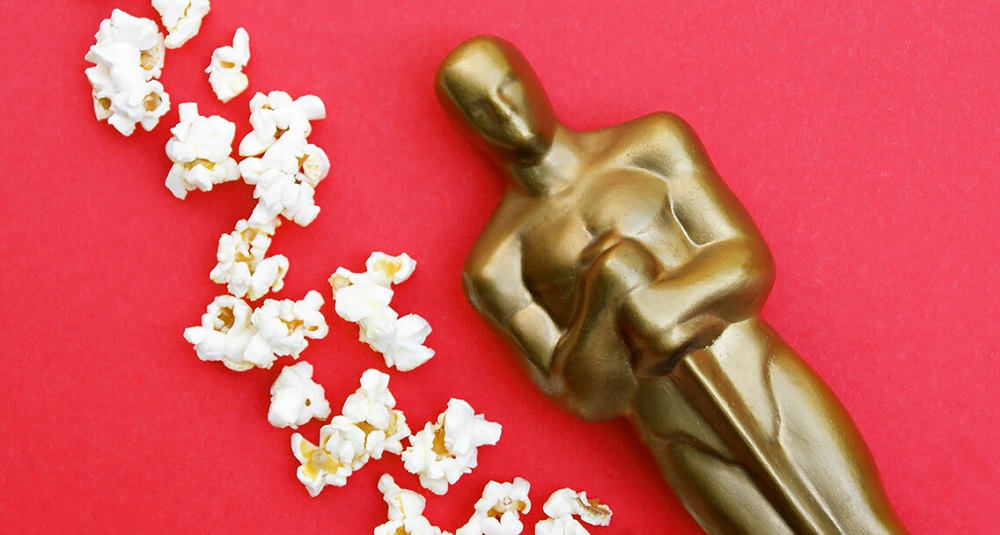
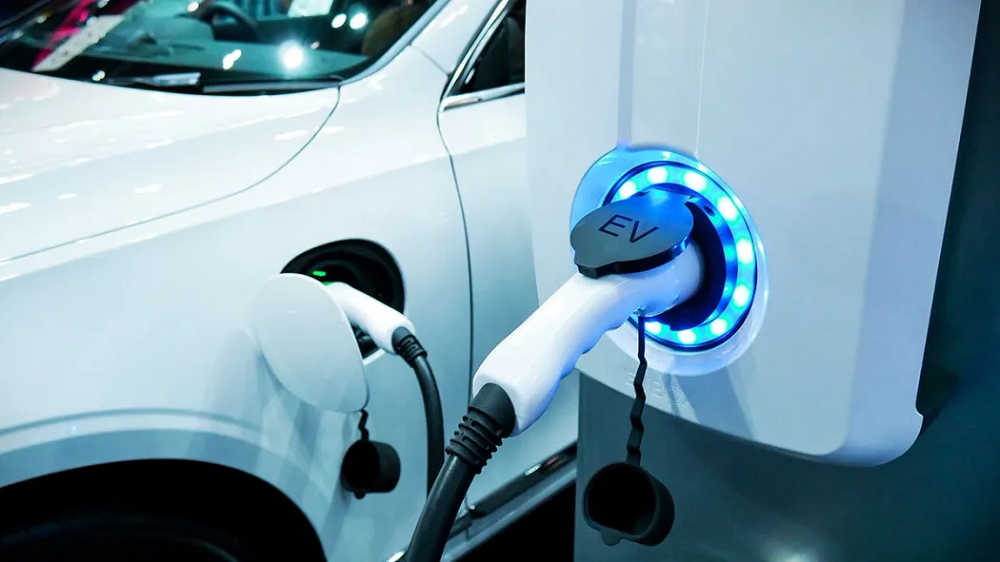
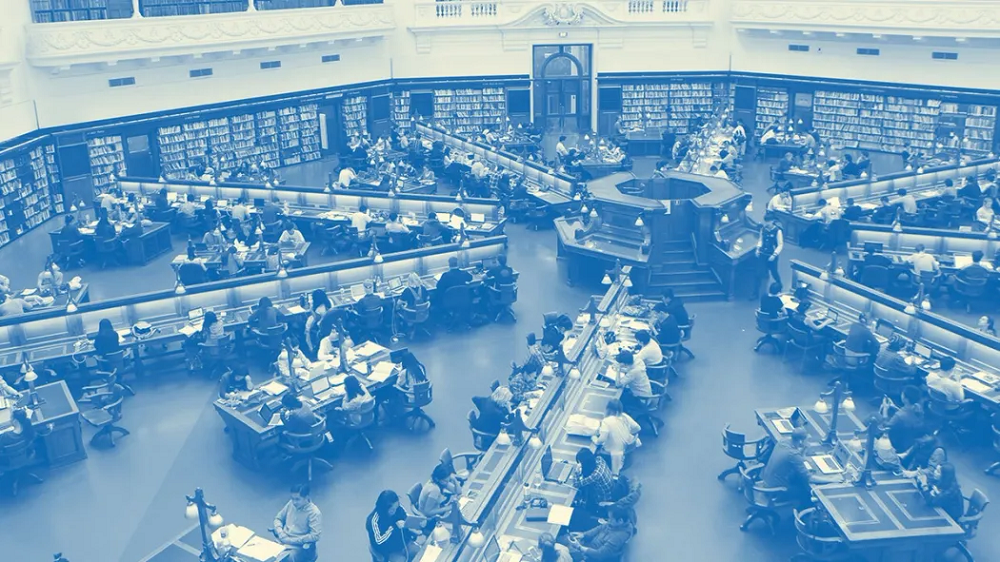
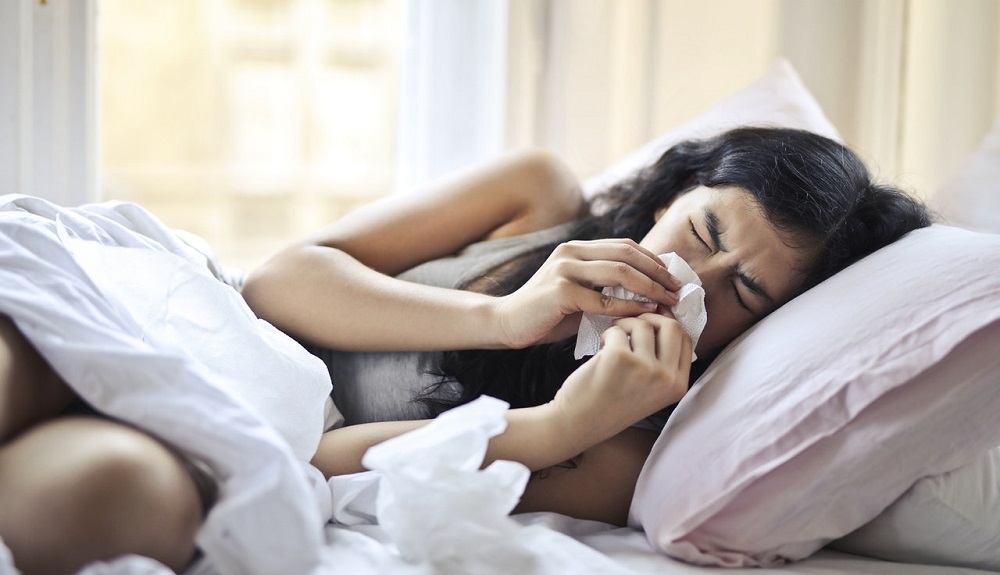
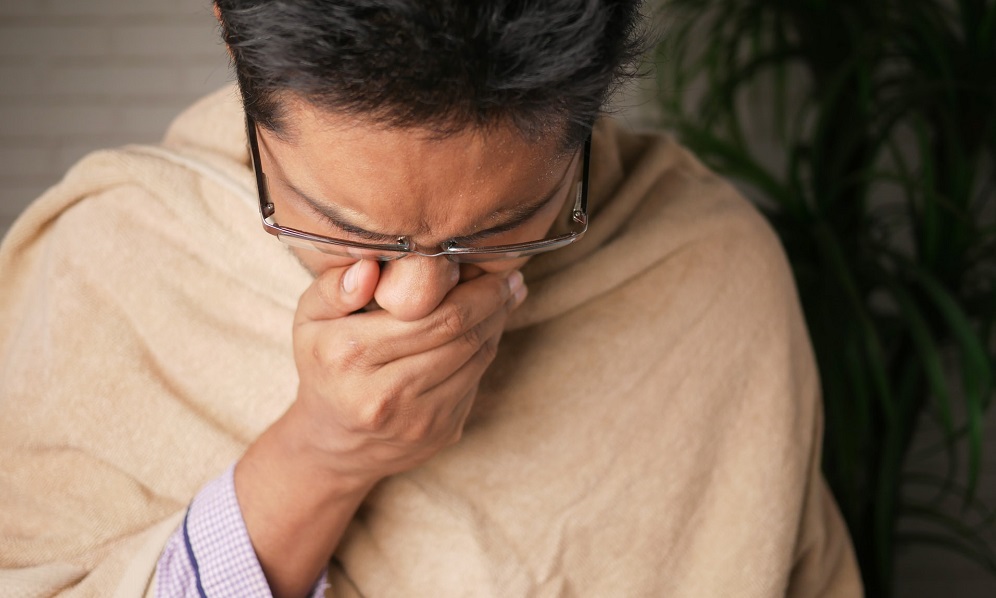







Sign up to receive our stories in your inbox.
Data is changing the speed of business. Investors, Corporations, and Governments are buying new, differentiated data to gain visibility make better decisions. Don't fall behind. Let us help.





